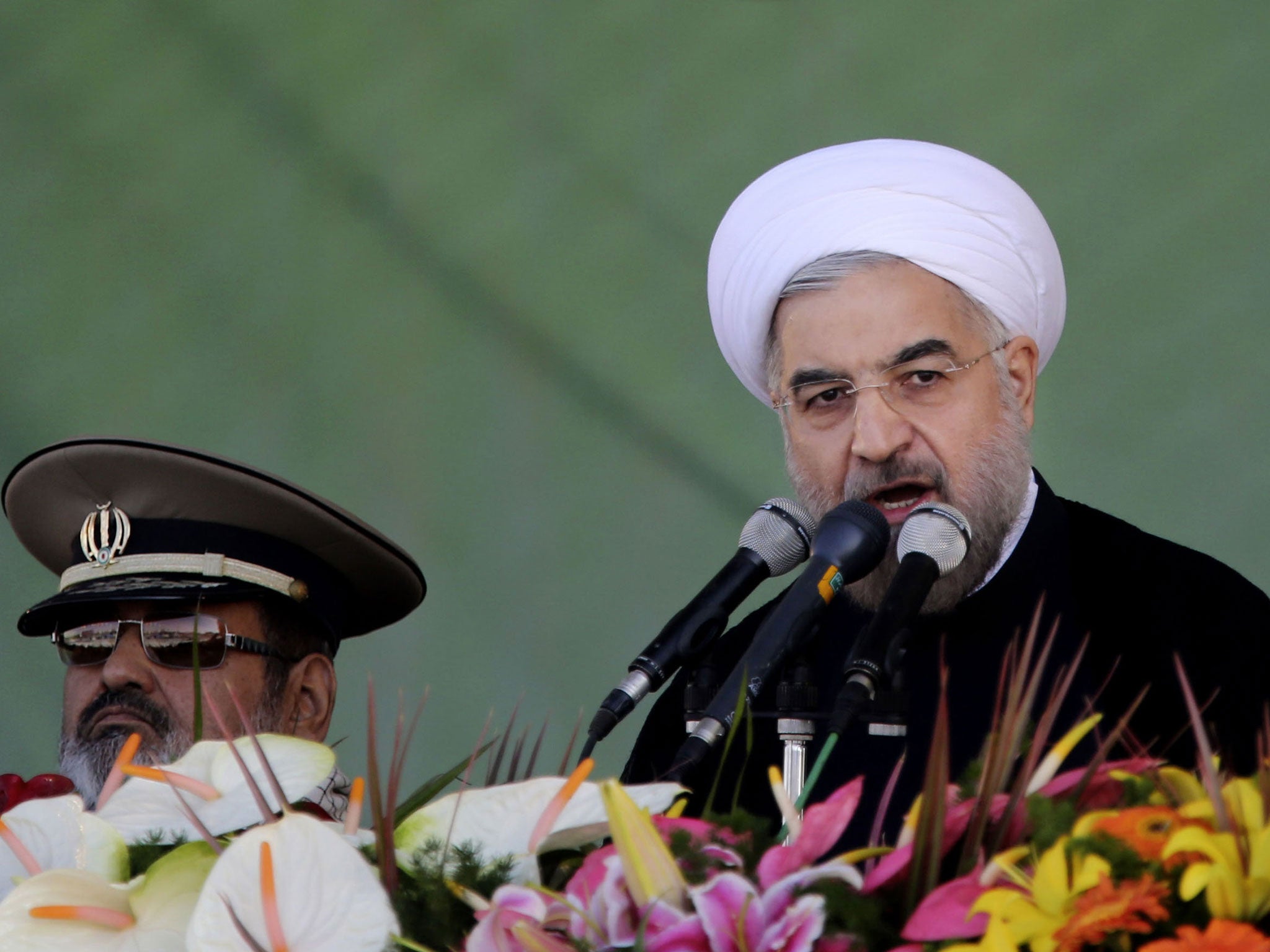Hassan Rouhani at the UN: Iranian President aims to end pariah status

Iranian President Hassan Rouhani attends the UN General Assembly in New York this week with hopes of ending Iran’s status as an international pariah and with lesser expectations of engaging the US in substantive negotiations on Iran’s nuclear programme.
Speaking before leaving Tehran Mr Rouhani said Iran is “loyal” to its pledge not to seek nuclear weapons and wants negotiations.
Mr Rouhani is already finding it easy to present Iran as less of a threat by using more moderate language than his predecessor as president, Mahmoud Ahmedinejad, who was notorious for his belligerent language. He made it easy for the US to isolate Iran and impose damaging sanctions, particularly those imposed on its oil exports and financial transactions in 2012. By way of contrast, Mr Rouhani has been a model of moderation towards the US and Israel since his inauguration, though he has not announced any changes in policy.
Mr Rouhani differs crucially from his predecessors in appearing to have full support from the Supreme Leader Ayatollah Ali Khamenei who is the ultimate authority in Iran. Mr Rouhani said on Sunday that “Iran has joined all treaties including the non-proliferation treaty, or NPT, and it is loyal to it.” Iran says that it has every right to enrich uranium for peaceful purposes such as nuclear energy while the West suspects that it is seeking the means to build a nuclear bomb.
Mr Rouhani will be careful to appear conciliatory while at the UN and in television interviews without courting accusations back in Iran that he is making too many concessions. In a statement issued just as Mr Rouhani was leaving Tehran on Sunday the powerful Islamic Revolutionary Guard Corps (IRGC), a paramilitary force established to safeguard Iran's revolution in 1979, directly hinted at this. It said that “historical experiences make it necessary for the diplomatic apparatus of our country to carefully and sceptically monitor the behaviour of White House officials so that the righteous demands of our nation are recognised and respected by those who favour interaction."
The White House said on Sunday said that a meeting was possible between the US and Iranian presidents, the first since the overthrow of the Shah. But such a meeting may be brief and symbolic since President Obama will want to avoid being seen as over-conciliatory in a way that would attract criticism from the Republicans and Israel. Israeli Prime Minister Benjamin Netanyahu has stigmatised Iran for covertly planning to build a nuclear device and has threatened unilateral Israeli air strikes.
Relations between the US and Iran have already been warmed by the replacement of Mr Ahmadinejad by Mr Rouhani and the US decision not to launch air attacks on Syria, which is a close ally of Iran. Iran sees the war in Syria as largely aimed by the US, Western Europe, Israel and the Sunni Arab states at weakening its regional influence. But America’s reluctance to strike at Syria in the wake of the chemical weapons attacks in Damascus on 21 August makes it less likely that it would go to war with Iran over the nuclear issue.
Join our commenting forum
Join thought-provoking conversations, follow other Independent readers and see their replies
Comments